HDC Member Highlight: Byrd Barr Place
The ever-changing Seattle is in the midst of an economic boom and rapid growth, but has concurrently created mass displacement due in large part to job growth, high capacity transit, and the resulting skyrocketed cost of living. In the Central District, the changing demographics are pushing out Black households that have lived in the area for generations. The rapidly gentrifying Seattle neighborhood is now home to less than 18 percent of Black residents. In the 1970s, more than 73 percent of the Central District’s residents were Black.
But there is one organization with roots so deep in the neighborhood that it is preserving the Black culture and community from within.
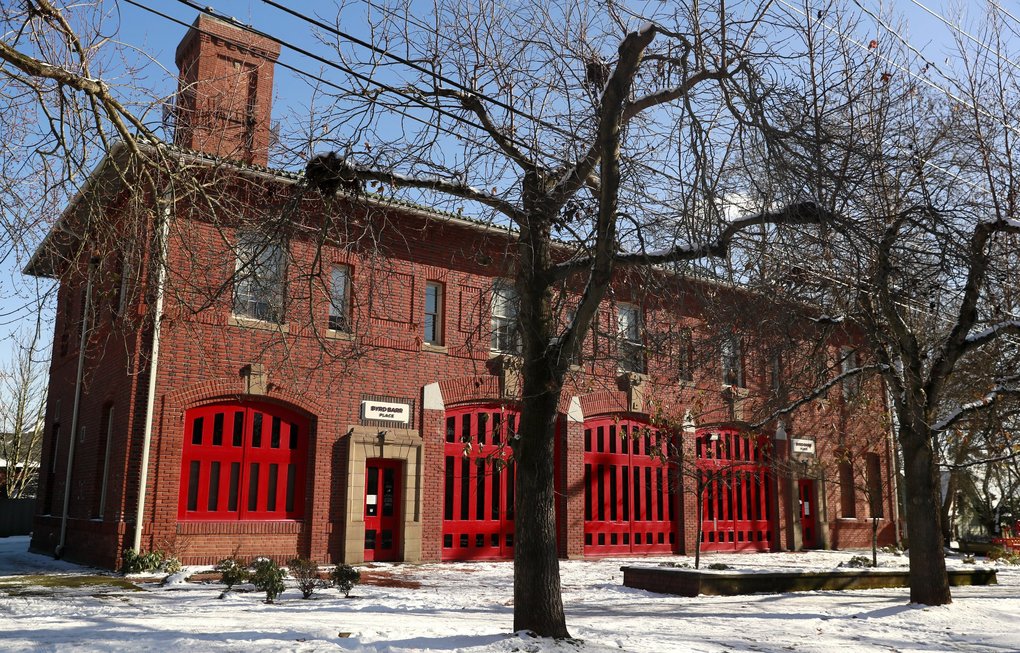
Byrd Barr Place, located in the heart of the Central District, is a true community-based organization aimed at preserving the community through advocacy and social assistance services. Born during the Civil Rights Movement, Byrd Barr Place is over 56 years-old, and upholds itself as a historically Black organization. The organization got its beginnings as a result of redlining in the Central District, acting as a social service hub for the community. Their vision of social equity began to grow more partnerships and expand services. Its mission was to address issues of race, class, and poverty so prevalent in the 1960s, and that mission and value remains today.
What Byrd Barr Place is today to the Central District community is an offshoot of what they have been since the Civil Rights Era: basic safety-net services. Take the Byrd Barr Place food bank, which has expanded its walk-in food bank and created grocery drop-off services. In doing so, they provide nutritious food to working people with limited income right to their doorstep.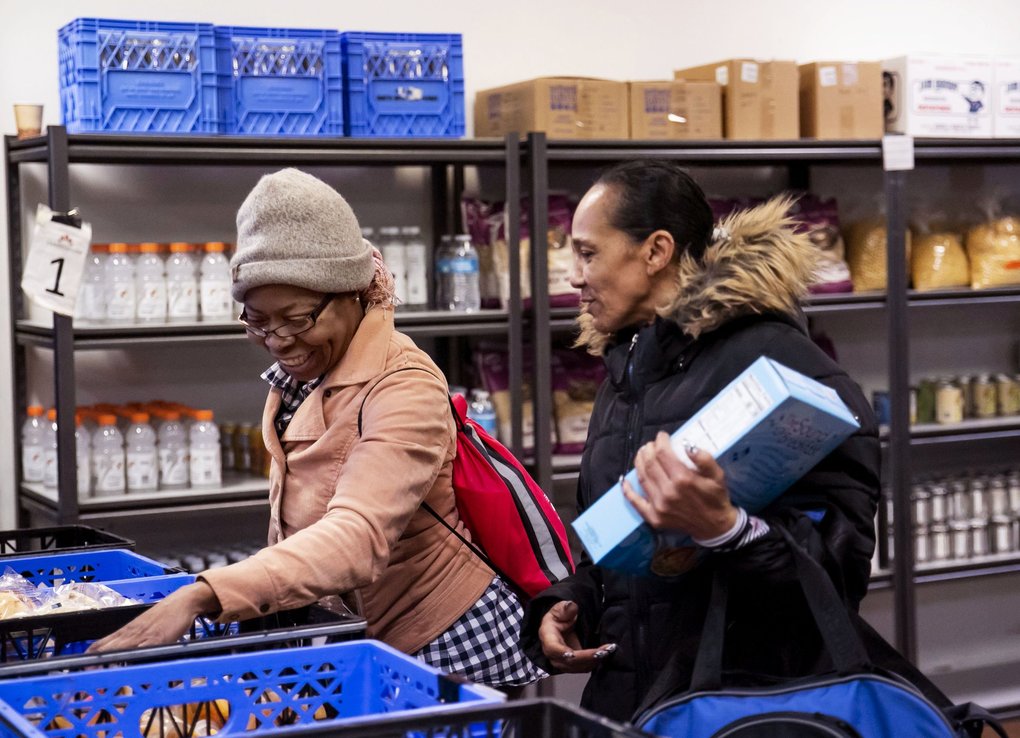
While Byrd Barr Place is not a houser, it works to keep people housed. They provide eviction prevention to pay resident’s back-rents. At the same time, Byrd Barr Place works with partner organizations who are housers, case managers, and wrap-around services providers, like Urban League, to ensure people stay in their homes. Their flagship Energy and Heating Assistance Programs can help eligible households keep their lights and heat on during the winter months. These programs help pay for electricity bills and heating tank refills to support healthy housing in their community.
In collaboration with fellow HDC member, Capitol Hill Housing, Byrd Barr Place was a pivotal partner in the national award-winning Liberty Bank Building. The building includes 115 units of affordable housing for households earning between 30 and 60 percent of area median income. The multi-use space will predominantly serve the Black community, 87 percent of the building units are leased by Black households. The commercial space will host Black-owned businesses. The partnership with Liberty Bank is grounded in racial justice as the historic bank was the first Black-owned bank West of the Mississippi. As Executive Director Andrea Caupain Sanderson explains, “The Liberty Bank Project is just one example of a number of properties that stake our claim to Black presence and culture in the city.”
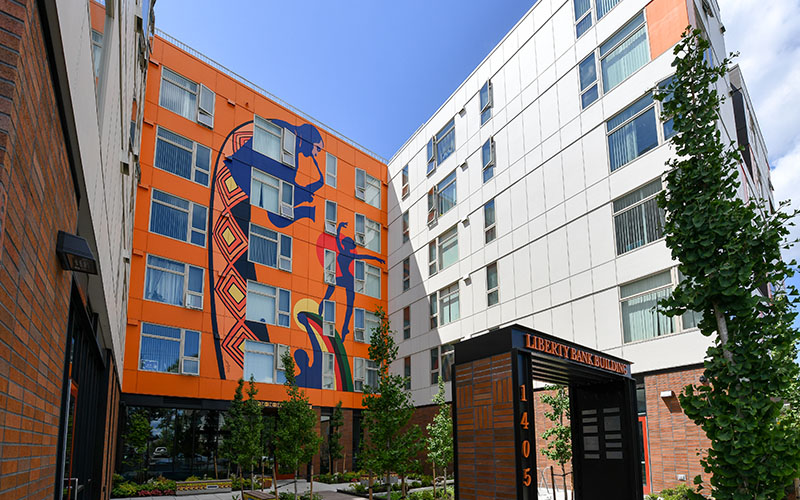
Andrea continued to explain that civic engagement right now means combatting displacement through housing and economic stability. There can be a cynicism that comes with working in social services because there is always more need than resources. At times, advocating for issues with stakeholders isn’t fruitful. But that isn’t what Andrea sees every day. Byrd Barr Place’s proximity and presence in the Central District inspires plenty to be hopeful for. She sees humanism, working together as a community. She witnesses people drop off bags of groceries to the food bank on their way home from the store. She sees people that have used their food bank come back and volunteer their time. She sees lasting reciprocal partnerships – with residents, organizations, and businesses.
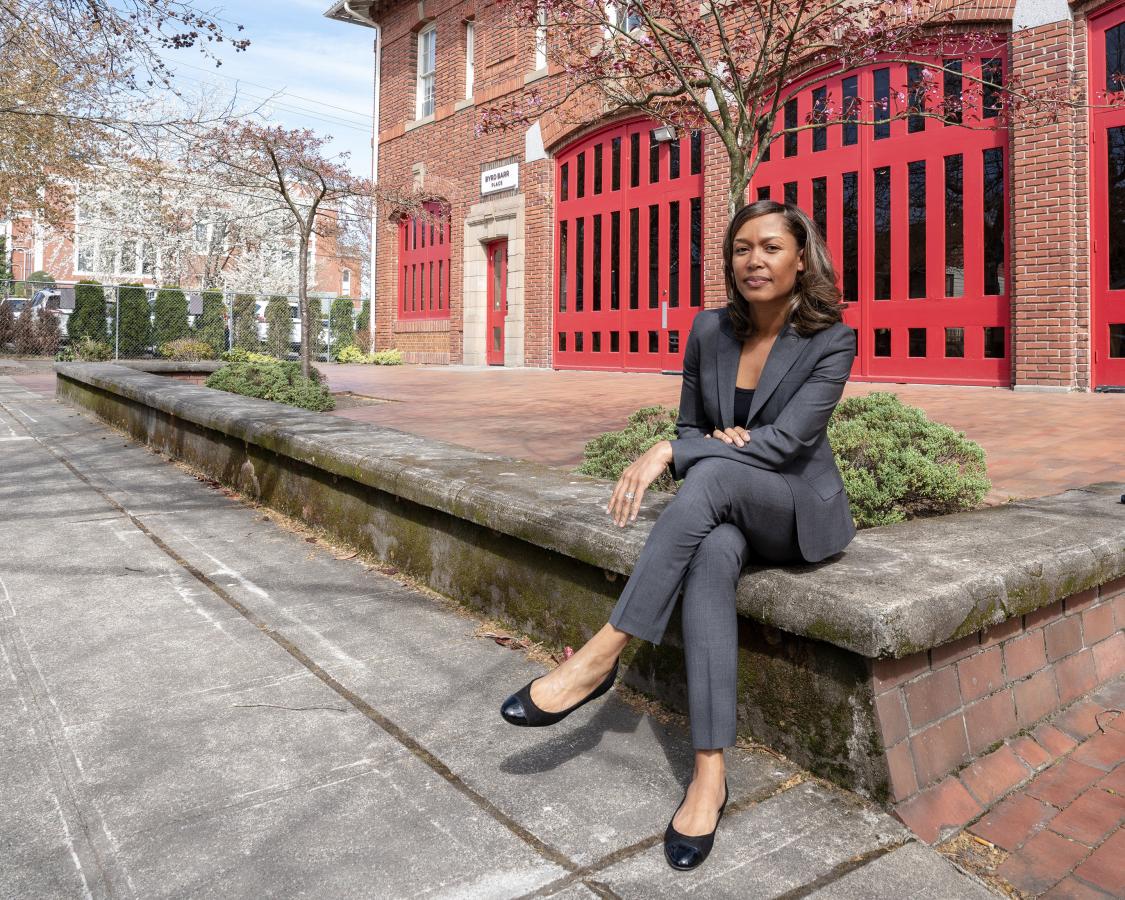
Looking forward, Byrd Barr Place is continuing to underscore its mission in supporting healthy homes, with their report Equitable Future in Washington State: Black Well-Being & Beyond. The report examines racism and inequity that have deeply impacted our state’s Black families and community, and encourages collaborative solutions. Created through partnerships with the Washington Commission on African American Affairs and the African American Leadership Forum, the report assesses the barriers to success in Washington’s Black community, especially access and quality of education, housing, employment, and healthcare.
Along with the report, Byrd Barr Place’s food bank is looking into ways to provide more fresh produce and less preserved/processed food, and even health-specific bags for chronic illnesses. In doing so, they are working with local farmers and grocers to obtain these expensive products that low-income residents may not have access to.
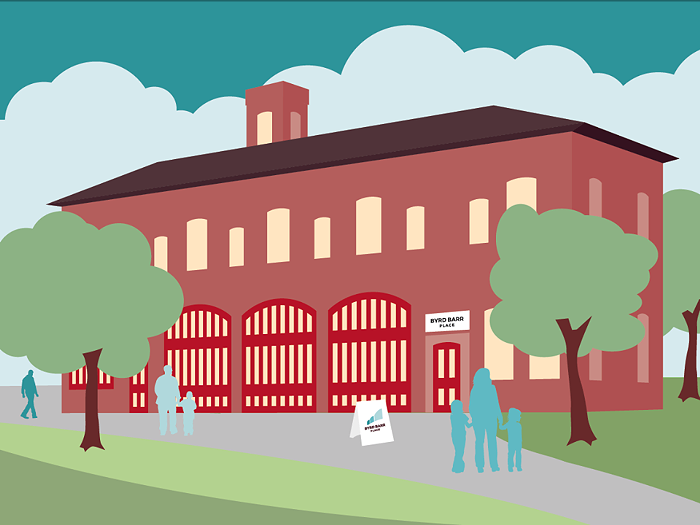
This year, Byrd Barr Place is also looking forward to the launch of a capital campaign to help modernize their 112 year-old building. Currently, the organization is negotiating the transfer ownership of its building from the city by mid-summer. While the building has a warm and welcoming interior, space will need a major upgrade to become ADA compliant and ensure it is earthquake safe. With an organization so grounded in place and belonging, they are excited to use this opportunity to expand their meeting spaces, which are open to all residents to use as a place to gather.
Andrea admits, like any other organization, there are bumps in the road but there is a lot of gratitude and kindness that grounds her work and Byrd Barr Place. As an organization, their presence in Seattle is as undeniable as their focus in creating a sense of belonging where Black people find a safe place to live, worship, learn, and play in the Central District.


